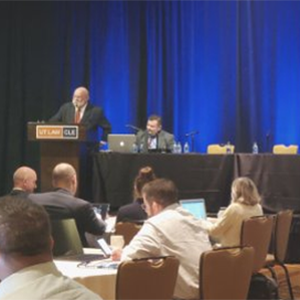
eCourse
Ethics in Contracting Issues
Contains material from Apr 2018
Well done. Very practical.
Great content. Interesting ethical questions.
Could not hear some of the questions from the audience. Maybe have microphones available for audience members to use.
Good information - good examples.
interesting
Could not hear questions. Otherwise, it was a good session
Could not hear audience questions
He is a good and interesting speaker
n/a
Very helpful examples to refine concepts. Enjoyed the presentation.
Technical Questions?
512.475.6700
service@utcle.org
Includes: Video Audio Paper
Preview Sessions
Show session details
Tom Spahn
Download session materials for offline use
Session 1
—58 mins
Ethics in Contracting Issues (Apr 2018)
Using hypotheticals, this presentation focuses on a number of ethics issues that might arise in contracting situations. Can lawyers take advantage of privileged communications the adversary inadvertently sends them? Can lawyers receiving electronic documents look for hidden metadata the other side has not scrubbed? What duties do lawyers have in representing contracting parties, with regards to disclosing client confidences to prevent the adversary from being deceived about the clients' intent, or to correct the adversary's misunderstanding about the law, the contract's terms, or the adversary's scriveners error?
Originally presented: Apr 2018 Health Law Conference
Tom Spahn,
McGuireWoods LLP - Tysons, VA